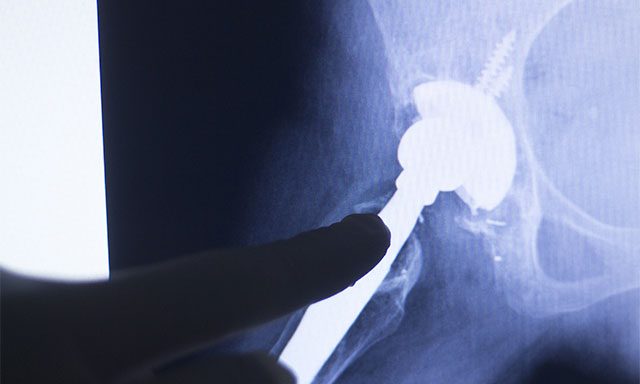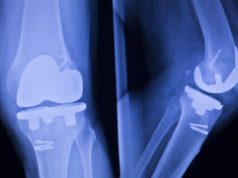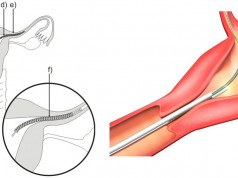
DePuy Pinnacle hip replacement systems may not be as safe as advertised.
Hip replacement implants are somewhat common in individuals later in life due to the wear and tear often sustained over decades of activity.
These devices can help retain movement and flexibility, and can be instrumental in helping you maintain an active lifestyle. That being said, hip implants don’t come without risks — including serious health risks such as the ones often suffered by patients fitted with DePuy Pinnacle hip implants.
History of DePuy Implants
DePuy hip implants were developed in 2005 by DePuy Orthopedics and Johnson & Johnson in an attempt to stem hip degradation experienced by senior citizens, as well as individuals suffering from chronic conditions such as rheumatoid arthritis and osteoarthritis.
The device is basically a ball and joint mechanism constructed out of chromium and other inert, yet strong metals that should withstand rotation and movement over a number of years.
This particular hip replacement system received FDA approval after its launch, despite the fact that it did not go through extensive testing (ostensibly because it was so similar to another product already on the market).
DePuy Hip Implant Complications
Shortly after the Pinnacle replacement system was released, serious problems became apparent. Thousands of patients who had had the DePuy Pinnacle hip replacement system started complaining about chronic pain and tissue necrosis, as well as other neurological side effects.
Several patients found that the product was disintegrating over time, sending metal fragments into the blood, kidneys, heart, and surrounding tissue, effectively leading to chromium and/or cobalt poisoning.
One study determined that patients who had certain metal-on-metal (MoM) hip replacement systems could have over 100 times the normal levels of cobalt and chromium in their blood. This is why many orthopedic surgeons recommend that patients with metal-on-metal hip replacements undergo blood tests for cobalt and chromium once every three months.
Some of the symptoms of DePuy Pinnacle hip implant complications include:
- Severe hip pain
- Restricted mobility
- Difficulty standing or walking
- Migraines and seizures
- Flank pain denoting kidney issues
- Swelling
- Joint pain
- Fatigue
- Weight gain
- Thyroid issues
- Increased urination
If you are experiencing any of these symptoms, or if a recent blood test has shown excessively large amounts of chromium or cobalt, it is recommended that you contact your orthopedic surgeon immediately.
DePuy Hip Implant Lawsuits and Settlements
Late last year, a Texas judge awarded $247 million to six plaintiffs who claimed that they suffered further injury as a direct result of defective DePuy hip implants. The plaintiffs alleged that they suffered tissue erosion, bone problems, and other health complications as a result of receiving the implant.
The jury in the case found that DePuy hip implants were designed in a defective manner, and that the makers of the implant failed to warn both doctors and their respective patients regarding the risks of the hip implants. Deliberation took 14 hours, and the trial lasted a whole month, or 31 days in total.
It is estimated that 9,200 lawsuits regarding the same matter lie pending in an MDL (multi-district litigation) that aims to consolidate many claims into one trial.
In 2016, five plaintiffs were granted $502 million when they won a verdict against DePuy in a bellwether trial, and 6 others were granted $1 billion later that year.
A Victim’s Right to Seek Compensation
Many Americans have been seriously harmed by these implants, and may be owed significant compensation from the manufacturer.
Time is of the essence when it comes to product liability claims. If you’ve suffered harm as a result of your hip implant, it’s strongly recommended that you speak to an attorney for legal advice concerning any potential claims.







